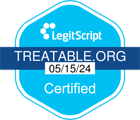Should you use RICE to treat gout?
When handling any condition, it is important to know what you should keep and what you should toss from your basic first-aid toolkit. When it comes to treating a gout-affected joint, the primary goals are to alleviate pain, reduce inflammation, and promote healing. When dealing with a typical joint injury, you may recall the RICE method from health class. Rest - Ice - Compression - Elevation. Three out of four of these still apply to gout, and can provide significant relief, but one is an absolute no-no.
- Rest: Resting the affected joint is generally advisable during a gout attack. It helps minimize stress on the joint and promotes healing. Avoid walking or putting weight on the joint, as it may exacerbate pain and prolong the healing process. Resting the affected joint allows it to recover and reduces the risk of further damage.
- Ice: Applying ice packs or cold compresses to the affected joint can help numb the area and reduce pain and inflammation. Use an ice pack wrapped in a thin cloth and apply it for about 15-20 minutes at a time, several times a day.
- Avoid Compression: Unlike other conditions such as sprains or strains where compression can help reduce swelling and provide support, applying compression to a gout-affected joint may worsen the symptoms and increase discomfort. You should not wrap the affected joint. Gout attacks are characterized by intense pain, inflammation, and sensitivity in the affected joint. Applying pressure through compression can potentially exacerbate the pain and hinder the healing process. Additionally, the accumulation of uric acid crystals in the joint can make it more sensitive to touch and pressure.
- Elevate: Elevating the joint above heart level can also help reduce swelling and inflammation. Elevation of the injured joint helps to reduce swelling by promoting better circulation and fluid drainage from the affected area. It will also reduce pooling, and fluid accumulation in the area.
Always remember to utilize your entire toolkit. Gout as a disease has no known cure. It is a chronic illness with attacks, also called flare-ups that can put you out of commission for days or weeks in the extreme. Be sure to utilize these tips and treatments in addition to those mentioned above.
- Fluid Intake: Drinking plenty of fluids, particularly water, can help flush out uric acid from the body and reduce the risk of crystal formation. Staying hydrated is important for managing gout and preventing future attacks.
- Medications: Nonsteroidal anti-inflammatory drugs (NSAIDs), such as ibuprofen or naproxen, are often recommended to help relieve pain and reduce inflammation during a gout attack. Your doctor may prescribe stronger medications or corticosteroids if NSAIDs are not sufficient. Additionally, medications like colchicine may be prescribed to prevent future gout attacks.
- Dietary Modifications: Making dietary changes can play a significant role in managing gout. Avoiding or limiting foods high in purines, such as red meat, organ meats, seafood, and sugary beverages, can help reduce uric acid levels in the body. Including low-fat dairy products, fruits, vegetables, and whole grains in your diet is generally recommended.
- Weight Management: Maintaining a healthy weight is crucial for managing gout. Excess body weight can increase uric acid levels, leading to more frequent and severe gout attacks. Regular exercise, along with a balanced diet, can help achieve and maintain a healthy weight.
The care routine for gout differs from a typical sprain or joint injury in several ways. It's important to consult with a healthcare professional for an accurate diagnosis and personalized treatment plan for your specific condition. They can provide guidance on managing gout and help differentiate the care routine from other joint injuries based on your individual needs.
